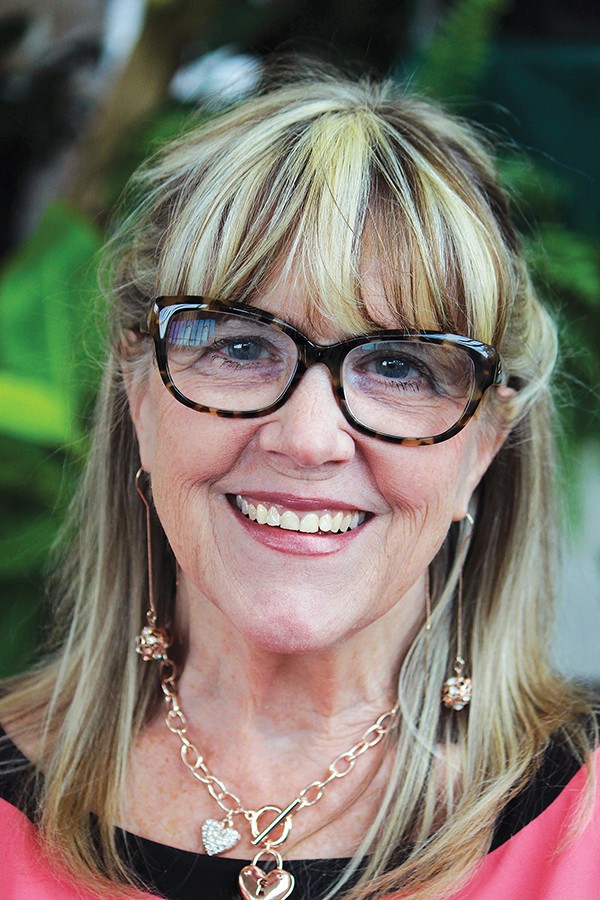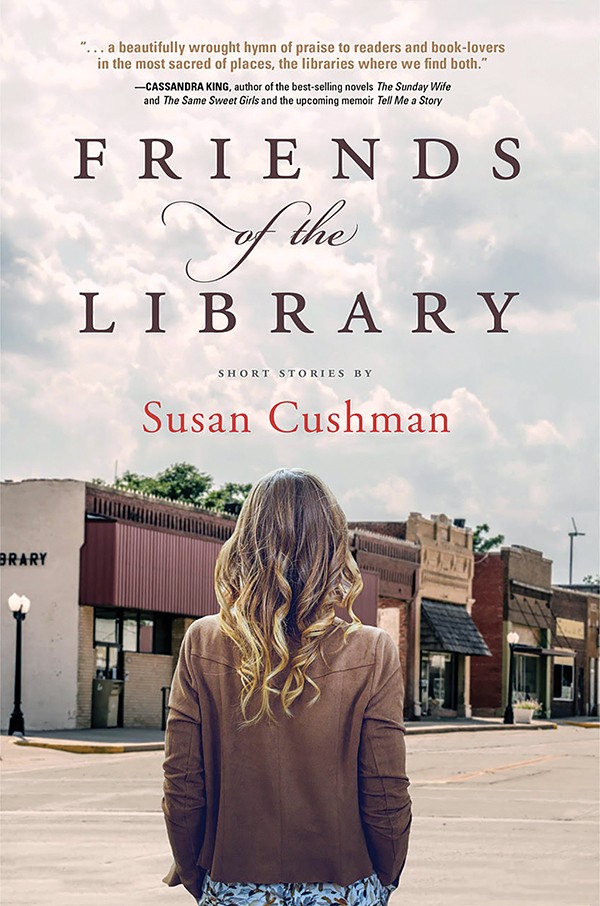Libraries are something of an endangered species these days. Public spaces without an admission fee rarely fit into the makeup of the modern city. Maybe that’s why Susan Cushman, the Memphis-based author of Cherry Bomb, chose them as the setting for her new collection of short stories, Friends of the Library.
Friends of the Library is Cushman’s first short story collection, and she’s celebrating the release with booksignings at Novel bookstore this Sunday, August 25th, and at Cordova Library, Wednesday, August 28th. Those readings kick off an autumn and winter book tour that will take the author to 10 independent bookstores and 24 libraries.

Susan Cushman
Cushman, a native of Jackson, Mississippi, who moved to Memphis in 1988 with her husband and three children, didn’t discover her love for libraries until recently. “I was more so always a writer,” she says. “I really got into writing in junior high and high school for literary journals and our newspaper. I thought, ‘I’m going to be a journalist.’ I was a feature editor on our newsletter, and then I did some freelance writing as an adult.”
Her journalistic leanings were put to the test, though, when she came up against a work of fiction that, for her, reframed what a writer could do. “I knew I wanted to write fiction when I read Pat Conroy’s The Prince of Tides,” Cushman says, explaining that she relished the idea of using her own trauma to inform her expression — all without being too “confessional.”
“I didn’t start seriously writing books until about 2006 or ’07 [when] I started working on a novel and a memoir,” Cushman says. Of the memoir, she adds, “I didn’t know it was going to be a book. I did 60 blog posts over an eight-year period about caregiving for my mother with Alzheimer’s, and then I turned it into a book in 2017. That was a different kind of book project because I didn’t know I was writing a book all those years.”

Cushman spoke at the Memphis Alzheimer’s Conference in 2018, which, along with other speaking engagements, gave her direct access to others who were struggling with similar challenges. “I spoke at a lot of book clubs and bookstores and conferences, and people would always say, ‘I didn’t know anybody else felt that way,'” Cushman says. Processing the experience in such a way gave her a different perspective on her relationship with her mother, which had been strained even before the struggle with Alzheimer’s. “I was able to forgive her before she died in 2016. That was a real blessing.
“At the same time, I started my novel Cherry Bomb, and that was a long project that took about six or seven years. It came out in 2017 as well,” Cushman says, which brings the story back to libraries. “I was visiting libraries in 10 small towns in Mississippi in 2017 on a little book tour for my novel, and as I visited each town, I did a little research about it. Even though I grew up in Mississippi, I’ve never been to most of those places.”
Cushman grew fascinated with libraries, especially those in small, rural towns, where libraries can function as a cultural crossroads. The people Cushman met on her book tour were dealing with the same issues as she had, but they had fewer places to go to gain perspective, to share their troubles, and to take comfort from their fellows. And the pages of Friends of the Library are populated by troubled people in need of comfort.
A few issues dealt with in the collection include cancer, Alzheimer’s, domestic abuse, homelessness, and racism. To help her navigate the maze of heartaches she had created, Cushman invented a fictional author to take the trip through Mississippi. “She gets involved in the lives of the people that come to the Friends of the Library meetings where she speaks.” Even as she’s helping to fix the fictional dilemma, “she’s helping the real person Susan.” Because, when you get right down to it, everyone could use a friend. Susan Cushman discusses and signs her new collection Friends of the Library at Novel bookstore Sunday, August 25th, at 2 p.m., and at the Cordova Library, Wednesday, August 28th, at 2 p.m.